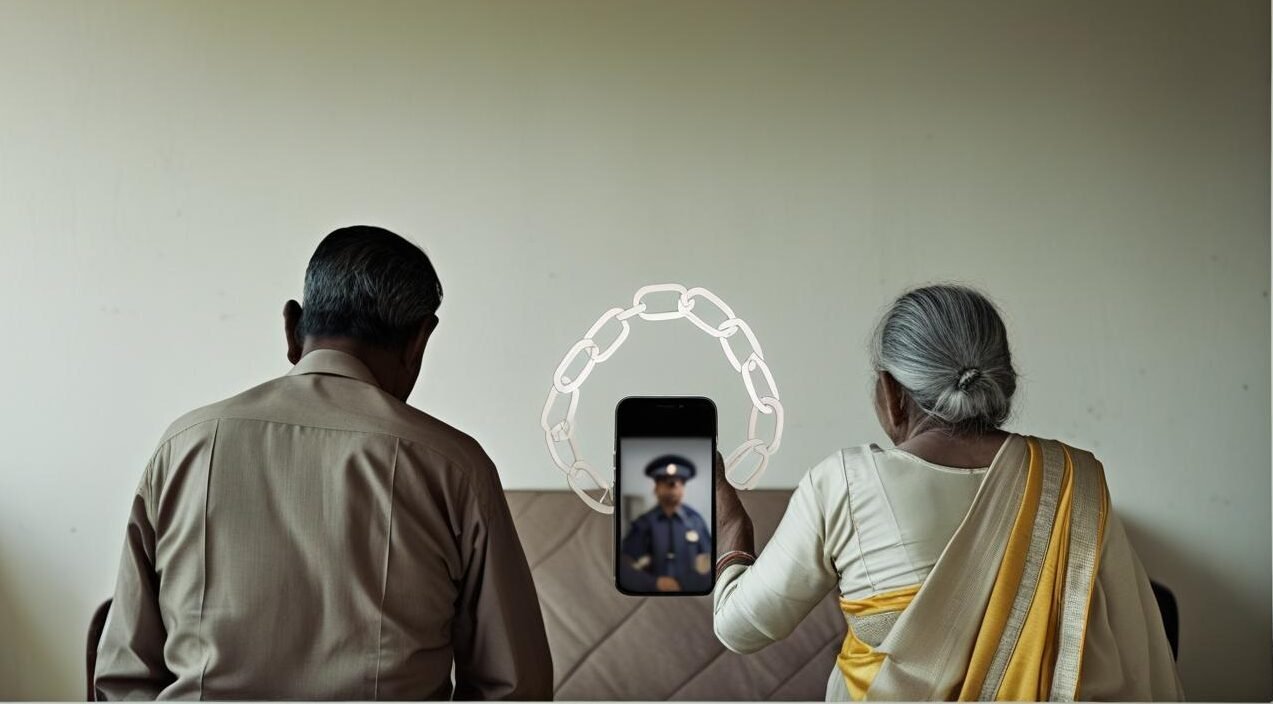A senior citizen from Vile Parle became the target of a sophisticated digital con. Impersonating telecom officials, police, and even a judge, cybercriminals trapped her in a fake “digital arrest”, a growing tactic exploiting fear and technology. Mumbai Police’s quick action salvaged ₹1.29 crore, but the case exposes how deeply manipulative and believable cyber fraud has become.
The Digital Drama: Authority, Fear, and a Judge on Video Call
Between Monday and Wednesday, a 73-year-old woman in Mumbai found herself entangled in a terrifying web spun by cybercriminals masquerading as government authorities. It began with a WhatsApp call, the man on the other end claimed to be from TRAI (Telecom Regulatory Authority of India). He warned her of irregular financial transactions from her bank account.
Before she could process this, another call came in. This time, the voice identified as a police officer, alleging that she was under investigation for financial fraud and linked to a tainted businessman. Panic-stricken, the woman was told she would be placed under “digital arrest.”
To deepen the illusion, a third person entered the charade via video call, posing as a judge. With a courtroom-like authority, he convinced her that the only way to avoid jail was to transfer funds for “security verification.” Over the next two days, the woman was coerced into transferring ₹2.89 crore, piece by piece.
The Aftermath: Fear Turns to Realization, Then Action
What broke the spell was silence, after the transfers, the imposters vanished. Sensing the deception, the woman gathered courage and contacted the national cybercrime helpline- 1930.
The cybercrime cell, acting swiftly and efficiently, logged the complaint on the NCPR (National Cybercrime Reporting Portal) and coordinated with banks and digital payment platforms. Their prompt response enabled the retrieval of ₹1.29 crore, a rare success story in cases of online financial fraud.
A senior Mumbai Police officer stated that the criminals use psychological tactics and digital impersonation to isolate and scare the victim. The case is a grim example of how trust in institutional authority is now being digitally weaponized.
FCRF x CERT-In Roll Out National Cyber Crisis Management Course to Prepare India’s Digital Defenders
The Anatomy of a Modern Scam: How Tech Is Used Against the Elderly
This case underscores a disturbing trend: “Digital Arrest” fraud, where scammers use impersonation of legal and regulatory institutions to create panic and urgency. WhatsApp, video calls, and even AI-generated voices are often used to mimic official tone and behaviour. Senior citizens, often less digitally literate, are frequent targets.
Experts warn that cybercriminals are increasingly turning to multilayered roleplay tactics, pairing tech with social engineering to break psychological defences. In this case, the seamless switching between fake TRAI officials, police, and judiciary figures painted a terrifying but believable scenario.
Authorities are now urging citizens to:
- Never trust legal threats over WhatsApp or video calls.
- Always verify identities through official websites or helplines.
- Immediately report suspicious activity to 1930.
The investigation into this case is ongoing. The elderly woman, while financially and emotionally shaken, has become a symbol of resilience and awareness, her swift reporting saved over a crore.
About the author – Prakriti Jha is a student at National Forensic Sciences University, Gandhinagar, currently pursuing B.Sc. LL.B (Hons.) with a keen interest in the intersection of law and data science. She is passionate about exploring how legal frameworks adapt to the evolving challenges of technology and justice.



